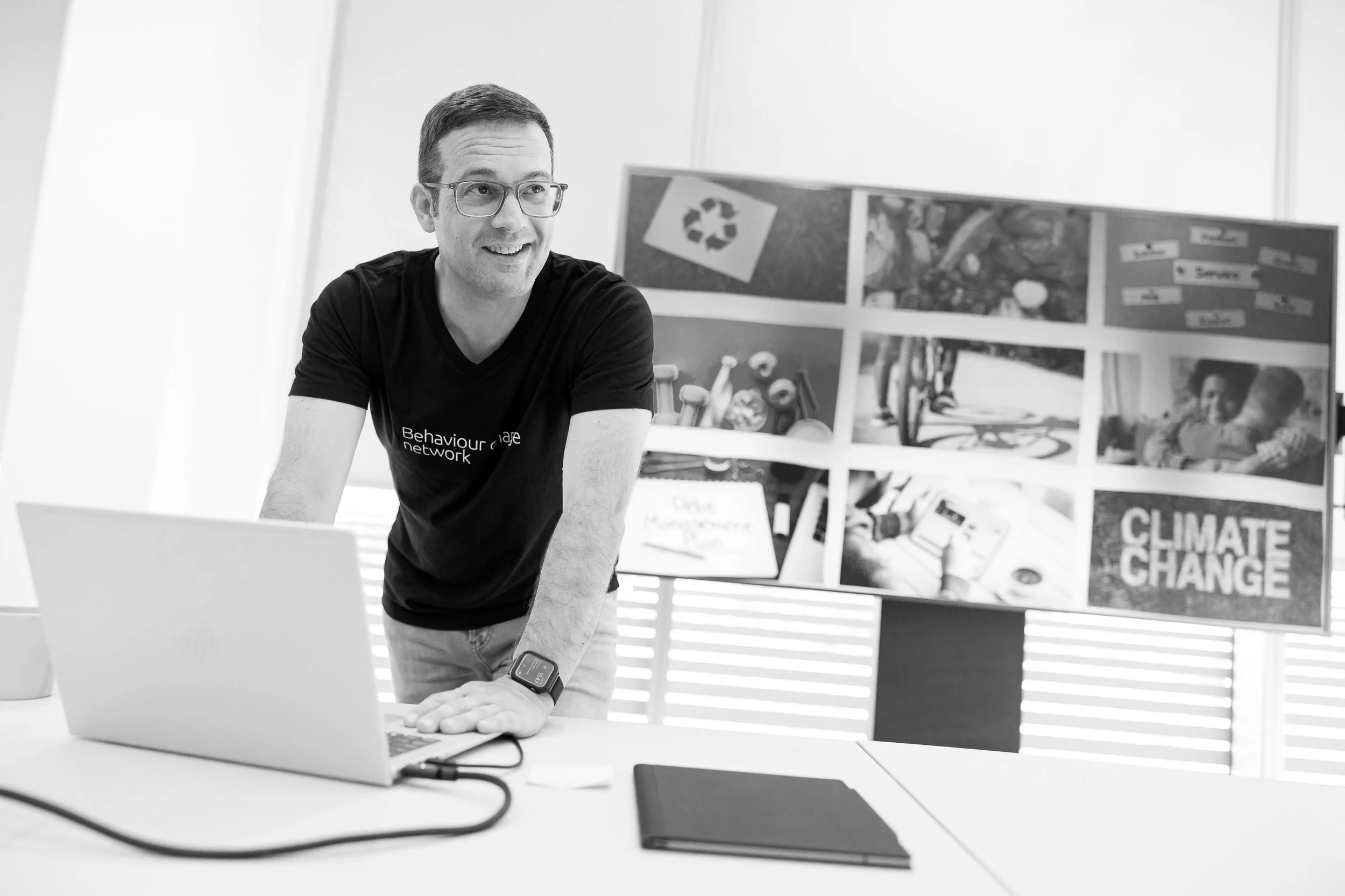Public sector comms isn’t just about pushing messages out, prettying up posters or sprinkling fairy dust on a report that no one understands.
by Dominic Ridley-Moy
Being asked for another logo was my personal favourite when I worked in-house. “No, we don’t need another logo that no one recognises.” We’ll spend ages trying to get people to understand what this logo is, when we could have just used our organisational one in the first place!
Rant over. Back to coffee.
And to the positives. Comms is all about the strategic value that it adds to an organisation. And when it comes to behaviour change, it's about helping people make better decisions, take action, and drive change linked to outcomes.
This point about outcomes is so, so, so crucial – colleagues and senior leaders get the value you bring when everyone else in your organisation sees how communications can drive change, save money, increase recycling rates, boost school attendance, reduce missed appointments, improve uptake of vital services, and so much more.
Over the years, I’ve tried lots of things that have worked really well, and lots that haven’t – but we don’t know what works and what doesn’t if we don’t try. Human behaviour is complex, and many things drive action.
So here are my four steps – called the B.E.S.T. framework - to drive positive behaviour change, with measurable impact and better outcomes:
Behaviour – Be precise about the behaviour (or behaviours) you want to change. Not just “recycle more,” but “use the food waste caddy daily”. Define who does what, when, and how. With a behaviour change campaign, less tends to work better.
Examine – Identify barriers. Why aren’t people doing it already? Use surveys, frontline insights, focus groups, or quick research to dig deep. Conversations with colleagues observing behaviour can be enough. Failing to take the time with steps 1 & 2 is where most campaigns fall short.
Solve – Apply your comms expertise. Craft clear messages, pick the right channels, reduce friction and tackle barriers. Use behavioural science and creativity to design interventions that cut through.
Test – Build in evaluation from the start. Pilot, A/B test, compare results to a baseline. Learn, adapt, and prove your impact. Don’t be afraid to start small to prove a concept.
And if you want to do more, my October Behaviour Change Masterclass will show you how to change behaviours, deliver measurable outcomes, and prove the worth of communications to leaders.
Over three mornings, you’ll:
Learn proven strategies to drive positive behaviour change
Save money compared to traditional comms
Deliver better outcomes and measurable impact.
Book your place today for an October 2 start.
Here’s what past participants say:
“Dominic removed the mystique around behaviour change and showed how to apply it simply and effectively. An excellent course.”
— Matthew Hall, Cambridgeshire County Council
“Highly recommend – great value, insightful guest speakers, and suitable for all levels.”
— Emma McBriarty, House of Commons
“Great to go through the theory and then apply the frameworks and tools into practical campaigns.”
— Dean Spurrell, Ashford Borough Council
Dominic Ridley-Moy is director at the Behaviour Change Network who are sponsors of the UnAwards 2025
*Sign up for the comms2point0 eMag*
The comms2point0 eMag features exclusive new content, free give-aways, special offers, first dibs on new events and much, much more.
Sound good? Join over 4k other comms people who have subscribed. You can sign up to it right here

